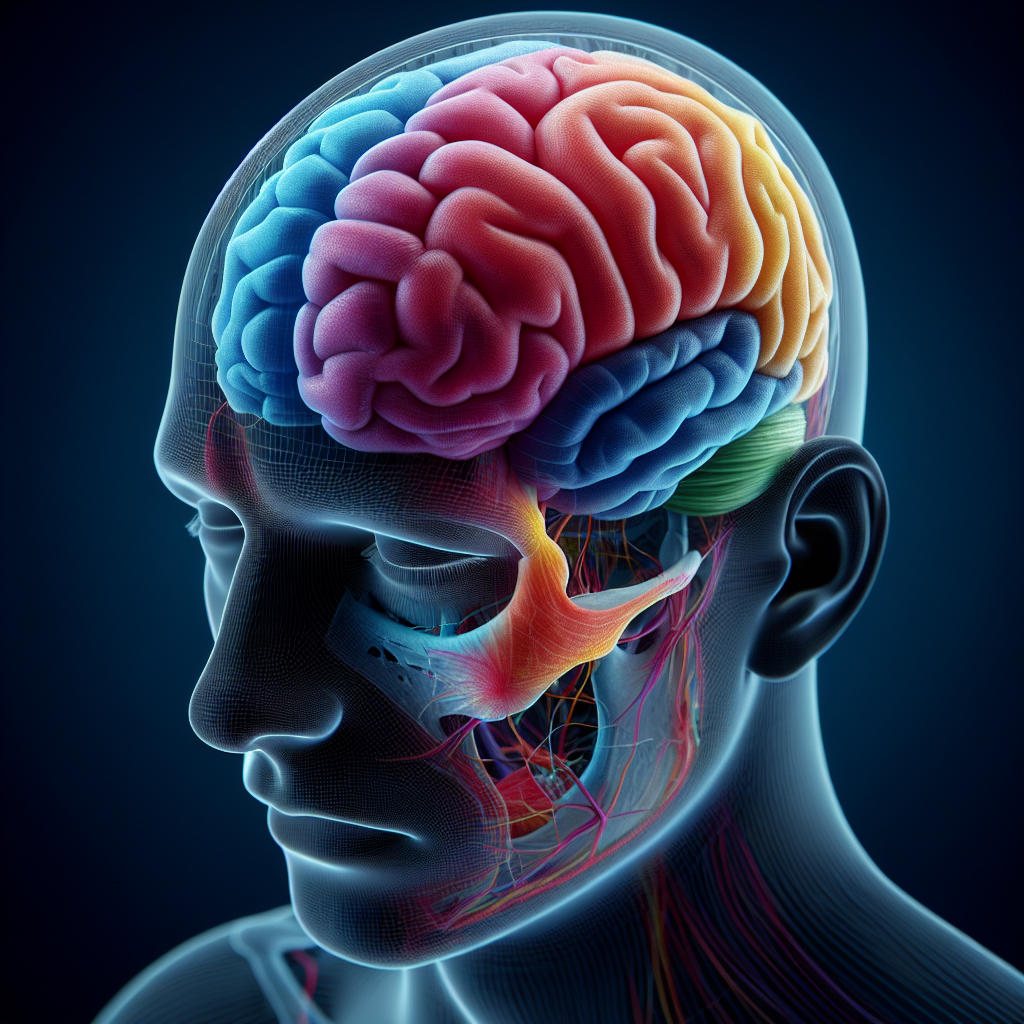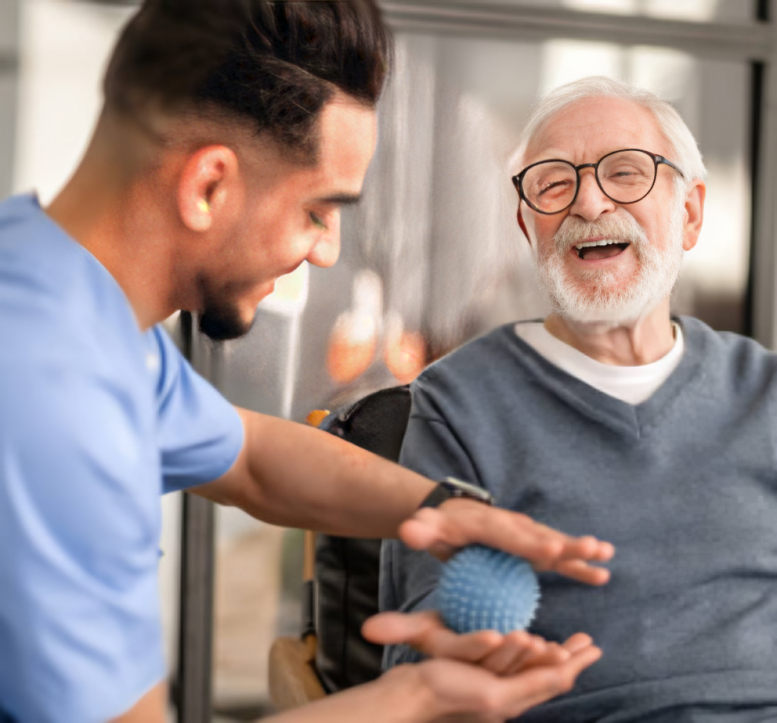
Concussion and Post-Concussion Syndrome Therapy
Concussions can occur as a result of a blow to the head or a sudden jolt, causing the brain to move back and forth rapidly within the skull. This can lead to a range of symptoms, such as headaches, dizziness, and difficulty concentrating. At Uptown Physiotherapy Clinic, we offer specialized Physiotherapy services to help individuals recover from concussions and manage the associated symptoms.
Collaborative approach with other healthcare professionals
At Uptown Physiotherapy Clinic, we believe in taking a collaborative approach to concussion treatment. Our team of physiotherapists work closely with other healthcare professionals, including doctors and neurologists, to ensure a comprehensive and integrated approach to care. This multidisciplinary collaboration allows us to tailor treatment plans to each individual's specific needs and provide the most effective care possible.Individualized treatment plans
We understand that each concussion is unique, and therefore, each individual requires a personalized treatment plan. Our experienced physiotherapists conduct thorough assessments to evaluate the severity of the concussion and identify the specific areas of impairment. Based on these findings, we develop individualized treatment plans that may include a combination of techniques, exercises, and therapies to address the specific needs of our patients.Education on activity modification
One of the essential aspects of concussion recovery is activity modification. Our physiotherapists provide education and guidance on modifying daily activities to minimize symptoms and promote healing. We help individuals understand which activities they should temporarily avoid or modify and provide strategies to adapt their routines accordingly.Vestibular rehabilitation
At Uptown Physiotherapy Clinic, we focus not only on the physical aspects of concussion recovery but also on managing the associated symptoms. Our physiotherapists employ various techniques to alleviate headaches, dizziness, and cognitive difficulties. These may include manual therapy, relaxation exercises, and breathing techniques to promote relaxation and reduce tension in the body.Vestibular rehabilitation
Many individuals who suffer from concussions experience vestibular system dysfunction, leading to balance issues and dizziness. Our physiotherapists are highly skilled in vestibular rehabilitation, a specialized form of therapy aimed at retraining and improving the function of the vestibular system. This involves a series of exercises and techniques to help restore balance and reduce dizziness.Balance and coordination exercises
Restoring balance and coordination is crucial during concussion recovery. Our physiotherapists guide individuals through a series of exercises designed to improve balance and coordination. These exercises may include balance boards, proprioceptive training, and coordination drills tailored to the specific needs of each individual.Cervical spine assessment and treatment
Concussions often result in musculoskeletal imbalances and dysfunction in the cervical spine (neck region). Our physiotherapists perform comprehensive assessments of the cervical spine to identify any underlying issues that may be exacerbating symptoms. Treatment may include manual therapy techniques, stretching exercises, and specific strengthening exercises to promote proper alignment and reduce pain.Advice on returning to sport or physical activity
Returning to sport or physical activity after a concussion requires careful consideration and guidance. Our physiotherapists provide advice and guidance on when and how to safely return to these activities, ensuring individuals do not put themselves at risk for further injury. We work closely with athletes, coaches, and trainers to tailor return-to-play protocols to each individual's needs.Long-term management strategies
Concussion management extends beyond the acute recovery phase. At Uptown Physiotherapy Clinic, we provide long-term management strategies to help individuals prevent future concussions and manage any persistent symptoms. This may include ongoing Physiotherapy sessions, education on injury prevention, and lifestyle modifications to promote overall well-being and minimize the risk of reinjury. In conclusion, Uptown Physiotherapy Clinic offers effective concussion and post-concussion syndrome Physiotherapy services. Our collaborative approach, individualized treatment plans, and variety of techniques and exercises help individuals recover from concussions, manage symptoms, and get back to their daily activities safely. With our expertise and comprehensive care, we strive to support individuals throughout their concussion recovery journey.Online simple step for appointment
To book your appointment with uptown Physiotherapy online, visit the uptownPhysiotherapyclinic.ca/contact or just call us at +1-519-252-2752.
Make Appointment
Just give us a call at +1-519-252-2752, date, time and providing your contact information.
Reminders
Choose your preferred physiotherapist when booking your uptown Physiotherapy appointment
Get Consultation
Receive consultations at Uptown Physiotherapy, your gateway to expert care in your neighborhood
Frequently asked questions
Approximately 15% of people with a concussion experience PCS, but this estimate may be conservative due to underreporting and varying diagnostic criteria. Seeking medical attention and recognizing subtle symptoms are essential.
Collaborate with a vestibular physiotherapist for optimized recovery. General tips include rest, gradual return to activity, addressing vestibular and visual issues, and managing emotional changes.
The most common post-concussive symptom is headache, followed by dizziness (often a sense of disequilibrium and imbalance rather than objective vertigo).
Other symptoms include:
Malaise
Fatigue
Altered noise tolerance
Irritability
Depression
Anxiety
Emotional lability
Subjective concentration, memory, or intellectual difficulties without significant neuropsychological impairment
Insomnia
Reduced alcohol tolerance
Preoccupation with symptoms and fear of brain damage with hypochondriacal concern and adoption of a sick role


